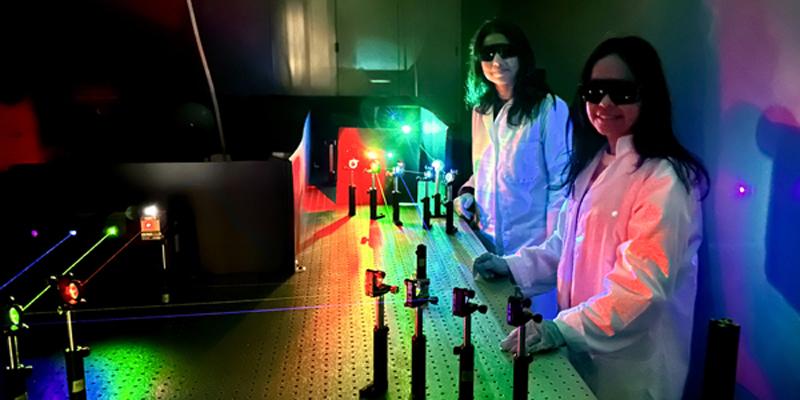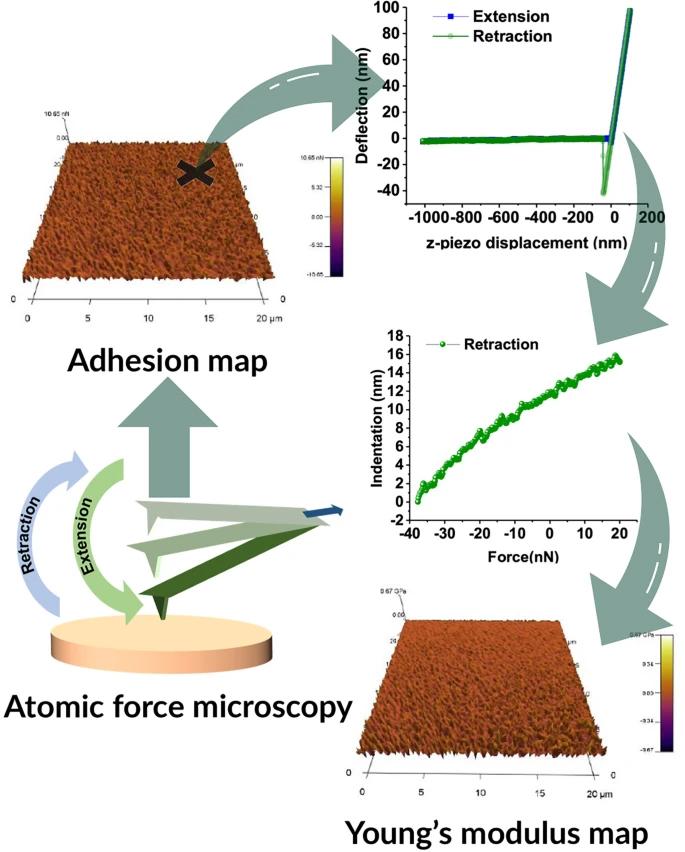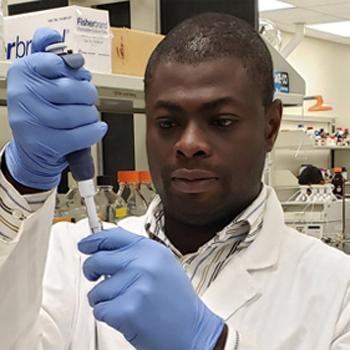
Our Chemistry Master of Science degree students plan, execute, evaluate, and communicate original chemical research. They develop specialized research skills to carry out this work effectively under the guidance of a faculty research adviser.
The graduate program spans all five traditional disciplines of chemistry (Analytical, Biochemistry, Inorganic, Organic and Physical). Within these five areas the department boasts particular research strengths in chemometrics, forensic chemistry, mass spectrometry, medicinal chemistry, supramolecular chemistry, materials chemistry, nanoscience and nanomedicine, nucleic acid research, protein and glycoprotein engineering, and spectroscopy.
Generally, it takes approximately 2.5 years to complete the M.S. curriculum; however, an accelerated M.S. degree program is available to qualified Ohio University undergraduate students.
Accelerated Program for Ohio University Undergraduates
This program allows students to complete their M.S. in Chemistry within 12 to 15 months after completing their bachelor’s degree. Students accepted into the accelerated M.S. program would typically begin research in their junior/senior year of undergraduate studies, taking graduate classes during their senior year. The accelerated M.S. program also has an optional graduate research exchange program with the University of Leipzig in which students conduct research in Leipzig for 2-4 months, generally during the summer.

Double Master's with Leipzig University
Earn two graduate degrees simultaneously from Ohio University and Leipzig University in an accelerated program (16-18 months) while gaining international research experience in Germany.

Making Discoveries, from Nanomaterials to Drug Discovery
Chemistry & Biochemistry faculty and students pursue state-of-the-art research on 21st-century problems, including pandemics, energy, cancer, biotesting, rare earth molecules, and more.
Reflecting the breadth and depth of chemistry as the central science, research in the department spans cross-cutting themes and core clusters.
OHIO Advances Graduate Research
Ohio University's Student Enhancement Awards are one way the university supports student research. The program provided 25 students with a total of $145,121 in funding for their original research, scholarship and creative work in the spring of 2025.
Three chemistry graduate students were among those supported:
- Deborah Amesaki Korkorreceived $6,000 for her work on “Identification of Novel Fragments Targeting T-box Riboswitch Anti-terminator.” Her mentor is Dr. Jennifer Hines .
- Ramasinghege Lumbini Paramitha Ramasinghereceived $5,970 for work on “Exploring Solvent-mediated Control of Ceiling Temperature for Developing Chemically Recyclable Polyesters.” Her mentor is Dr. Katherine Cimatu .
- Lasantha Rangika Sendanayakereceived $6,000 for her project, “Surveying H12 Dynamics within Type 1 Nuclear Receptors using a Bipartite Tetracysteine Display.” Her mentor is Dr. Justin Holub .

Chemistry M.S. Courses & Degree Requirements
The requirements for a master's degree in chemistry consist of a combination of coursework, seminars, and research.
- A minimum of 30 semester hours (including research credits) in chemistry and approved electives at the 5000 level and above.
- Attendance at a seminar course each semester and a yearly departmental seminar presentation after the first year of study.
- Students must take competency exams and classes on entering the program and must take eight graded course credits within their area of study unless permission is received from the graduate committee to take classes outside the major area of study.
- Students have three thesis options: i. Prepare a written thesis; ii. In lieu of a thesis, publish in a refereed journal, a paper based on the student's research; iii. Instead of a research thesis or published research paper, a student can complete 26 credit hours of graded coursework at the 5000-level or above and write a review-type article.
- All students must present their thesis-related work orally at a public meeting followed by an oral defense held before the student's thesis committee.
- The average period of study is two and one-half years.
Related Programs
-
Ph.D. in ChemistryOur chemistry Ph.D. degree trains highly effective scientists with the interdisciplinary tools, research skills, and ethical and service sensibilities needed to succeed. Our faculty pursue state-of-the-art research in their labs.
-
Chemistry—Molecular and Cellular Biology Ph.D.Our interdisciplinary graduate program in Chemistry and Molecular and Cellular Biology provides students with one-on-one faculty mentoring and cutting-edge scientific, education, and research opportunities.
-
Online M.S. in ChemistryWith convenient online courses, you can earn all 30 credits needed to receive your M.S. in Chemistry in as few as three semesters. Along the way, you will acquire skills and knowledge in a wide range of chemical and biochemical topics.


